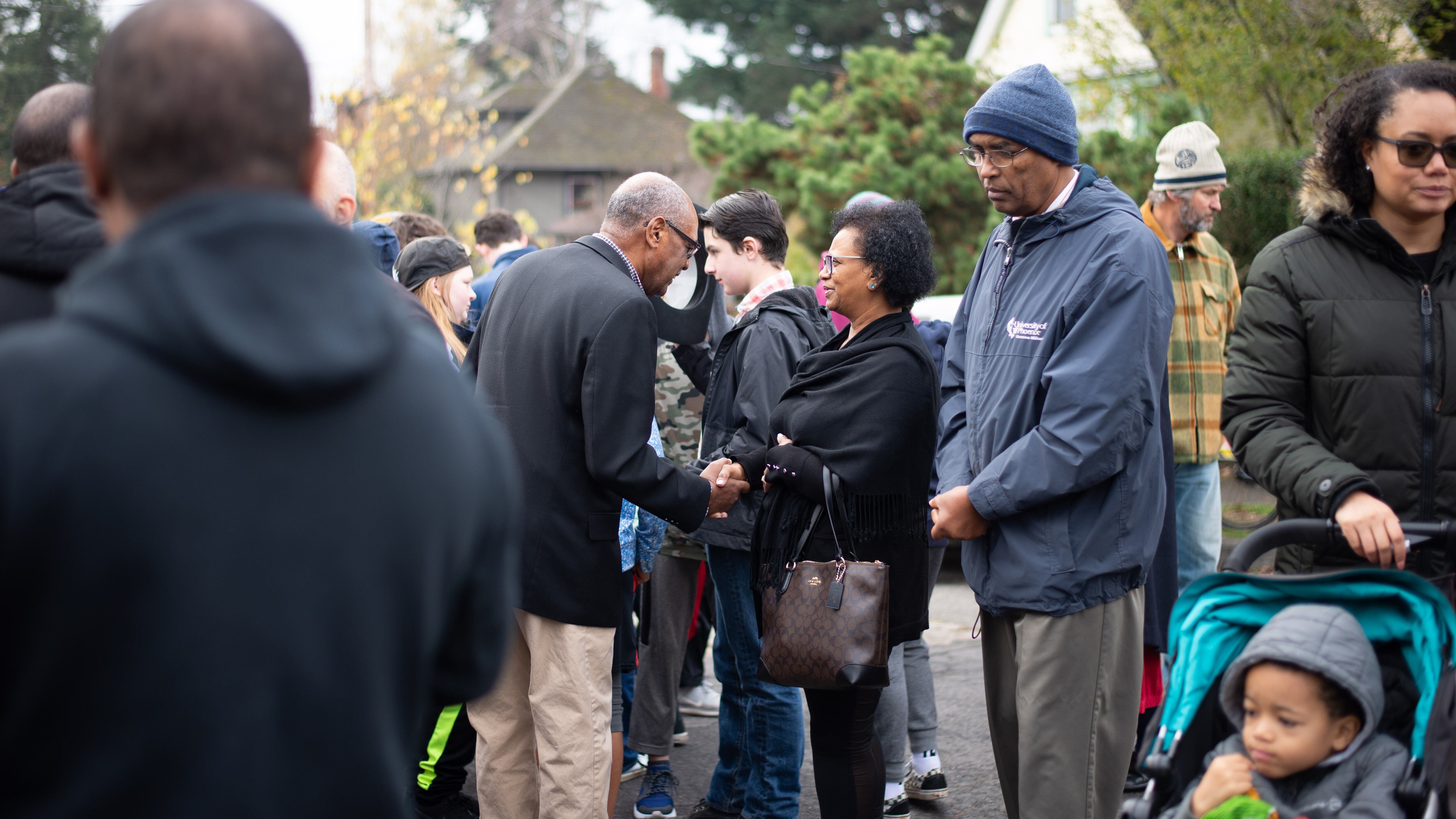Thirty years after Mulugeta Seraw, an Ethiopian immigrant, was beaten to death by three white supremacists, the city has added sign caps on street signs in the Southeast Portland neighborhood where he was murdered.
Family, members of the city's Ethiopian community, neighbors and students from nearby a school gathered on Wednesday morning for the unveiling of the sign caps. The 16 signs, added to street signs between Burnside and Stark below Laurelhurst Park, say Seraw's name in English and Amharic, the official language of Ethiopia, and the years he was born and died.

At a podium below the new signs, Engedaw Berhanu, Seraw's uncle, described his reaction to the public's response to his nephew's death over the past 30 years.
"I guess Mulugeta touched a nerve in this community," Berhanu said. "People who didn't know him, people who weren't born, young people, are here to honor [him]. Thank you, young people, for coming," he said, gesturing toward the group of students present at the unveiling.
The project was led by the Urban League of Portland, the Portland Bureau of Transportation and SE Uplift.

Elinor Langer, who wrote a book about Seraw's death, stood on the corner of Southeast 31st Avenue and Pine Street. The corner "looks exactly the same today as it did then. It's one of the places in Portland that hasn't changed," Langer said. "But now it has changed, because the signs are here, and we're here."
Seraw's killers pleaded guilty and were convicted without a trial. But two years after Seraw's death, his death came further into the spotlight. In 1990, the Southern Poverty Law Center successfully sued California white supremacist Tom Metzger for "vicarious liability" in Seraw's death. Metzger founded the White Aryan Resistance, or WAR, which Seraw's killers were affiliated with.
When Seraw was murdered, he had a six-year-old son, Henock Seraw, in Ethiopia. James McElroy, a SPLC lawyer who worked on Seraw's case, later adopted Henock.
Fighting back tears, McElroy echoed the words of Berhanu. "I think the most impressive thing is to see this group of kids from school. They are our hope and they are the best opportunity for change," he said.
Portland Commissioner Chloe Eudaly described the murder of Seraw as "a rude awakening for many progressive white Portlanders."
"His murder shocked a portion of our community, but it didn't shock every Portlander," Eudaly said. "It certainly didn't shock our black neighbors, who had been living in fear of what happened to Mulugeta happening to them."

Nkenge Harmon Johnson, president and CEO of the Urban League of Portland, said the threat of violent racism continues in Portland.
"Our eyes are wide open," said Harmon Johnson. "We know that the Patriot Prayer boys and the Proud Boys and the white nationalists and those other hoodlums who seek to make us unsafe, who want to bring us back to 30 years ago when Mulugeta was beaten on these streets by those thugs—we know there are folks who want to bring us back to that. But look at all of you here today."

